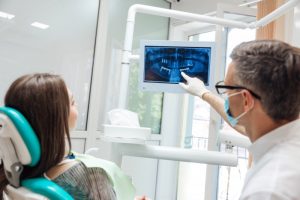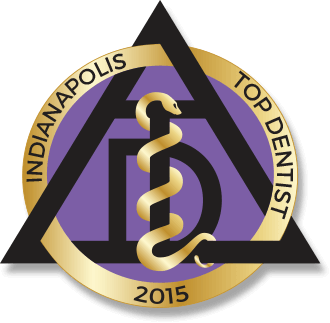 Going to your routine dental checkups and cleanings helps detect problems early to keep them from progressing and being harder to treat down the road. Even though your dentist is professionally trained to examine your mouth in search of symptoms of oral health problems, some diseases and issues can’t be detected with the naked eye. Learn how dental X-rays could save your life by detecting issues early on.
Going to your routine dental checkups and cleanings helps detect problems early to keep them from progressing and being harder to treat down the road. Even though your dentist is professionally trained to examine your mouth in search of symptoms of oral health problems, some diseases and issues can’t be detected with the naked eye. Learn how dental X-rays could save your life by detecting issues early on.
What are Digital X-rays?
Since traditional film X-rays, advancements in technology have provided a safer and more convenient method with digital radiography. When you visit your dentist for your routine checkup and cleaning, they may recommend taking an X-ray to see the health of your entire mouth. They’ll place a small sensor in your mouth that helps capture high definition images of your teeth, mouth, and jaw. Digital X-rays are also safer because they reduce levels of radiation up to 80%.
Since the quality of the picture is better, your dentist can detect problems more easily. Also, digital radiography doesn’t need to be developed using toxic chemicals, so it’s better for the environment and safer for our team of professionals to handle. Lastly, these images can be easily stored and transferred for insurance purposes or professional referrals.
What Problems Can Dental X-Rays Detect?
Since your mouth is inspected by your professional first, you probably feel like X-rays are unnecessary. However, they’re able to spot problems hidden under the surface that may not be exhibiting any symptoms. These include a variety of conditions such as:
- Oral infections
- Damaged roots of teeth
- Jawbone deterioration
- Wisdom teeth
- Impacted teeth
- Cysts
- Tumors
- Dental decay
These are only some of the many problems that X-rays can identify. When these issues are left untreated, they can progress into something serious that requires a more invasive procedure. Some issues such as decay can even result in tooth loss down the road. X-rays are just as important as your semi-annual cleanings and can prevent serious health conditions from wreaking havoc on your life.
How Often Should You Get a Dental X-ray?
Even though you visit your dentist every six months, you don’t necessarily need an X-ray twice a year. If you stick with the same dentist, they only take them when they feel it’s necessary for treatment, and to diagnose certain health issues. There are also multiple factors that go into how frequently you need an X-ray including:
- Age
- Symptoms of oral health problems
- High risk for oral disease
Depending on your age, which is arguably the biggest factor, adults should have X-rays every couple of years, teens every one to three years, and children every year or so. If you’re at an especially high risk of getting cavities, your dentist may decide it’s necessary to give you an X-ray every time you visit them.
Like your daily oral hygiene routine, getting regular digital X-rays is an important part in fortifying your oral health and protecting your wellbeing. If you’re experiencing any pain or discomfort, be sure to visit your dentist sooner rather than later, because it could save you from serious health problems!
About the Author
Dr. Mark Farthing has been improving and protecting patient smiles for over three decades. He takes continued education courses to keep up to date with the latest discoveries in his field so he can give his patients the highest quality of treatment. He has also completed advanced training and studies in sedation dentistry because he believes that everybody should be able to feel relaxed while getting the care they need. For questions or to schedule a routine checkup and cleaning, visit Indianapolis Family Dentistry’s website or contact 317-898-3384.


